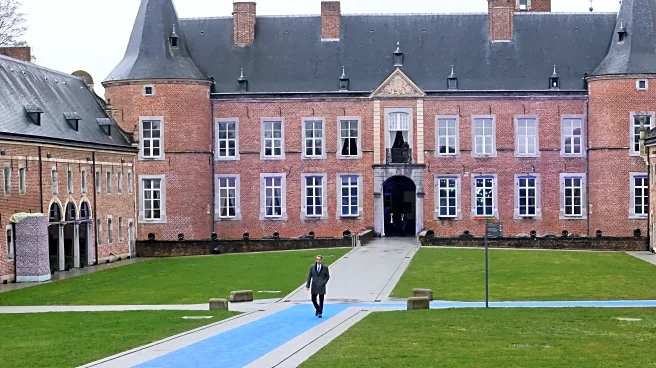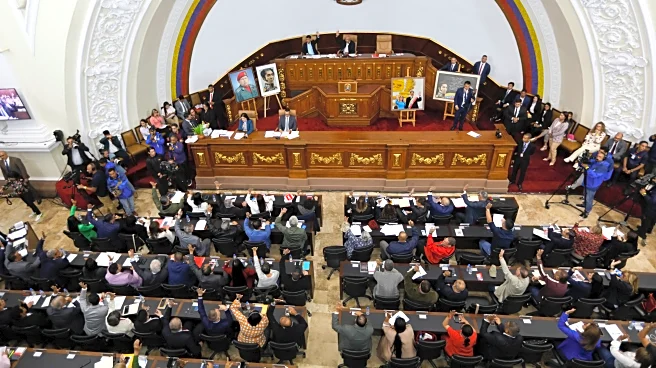What's Happening?
A ceasefire has taken effect in Gaza, allowing Palestinian refugees to return to the region. This development coincides with President Trump's upcoming trip to the Middle East, where he is expected to oversee the release of remaining Israeli hostages. The ceasefire marks a significant moment in the ongoing conflict, providing a temporary halt to hostilities and enabling displaced individuals to return home. Erica Brown reports from Washington, highlighting the diplomatic efforts involved in reaching this agreement.
Why It's Important?
The ceasefire in Gaza is a critical step towards stabilizing the region, potentially easing tensions between conflicting parties. President Trump's involvement underscores the U.S.'s role in international diplomacy and conflict resolution. The return of refugees may alleviate humanitarian concerns, but the situation remains fragile. The release of hostages is a pivotal aspect of the ceasefire, impacting regional security and diplomatic relations. Stakeholders, including governments and humanitarian organizations, are closely monitoring the situation to ensure the ceasefire holds and further negotiations can proceed.
What's Next?
President Trump's visit to the Middle East is expected to focus on reinforcing the ceasefire and facilitating the release of hostages. Diplomatic discussions may continue to address underlying issues and prevent future escalations. The international community will likely play a role in supporting peace efforts and providing aid to affected populations. Observers anticipate potential reactions from regional leaders and groups, which could influence the stability of the ceasefire and future diplomatic engagements.
Beyond the Headlines
The ceasefire may have broader implications for U.S. foreign policy, particularly in terms of its approach to Middle Eastern conflicts. Ethical considerations regarding the treatment of refugees and hostages are paramount, as are the long-term prospects for peace in the region. The situation could prompt discussions on international law and human rights, influencing future policy decisions.













